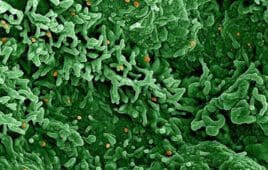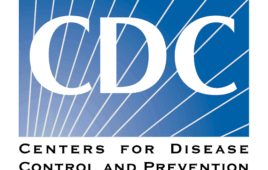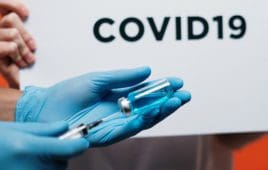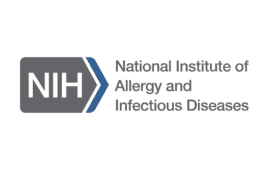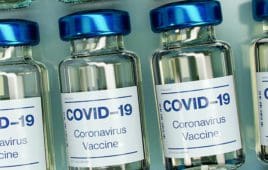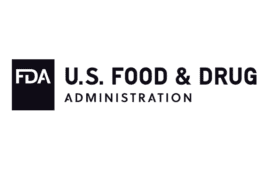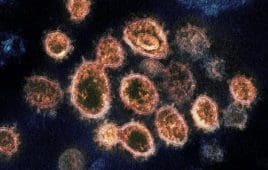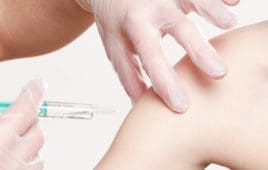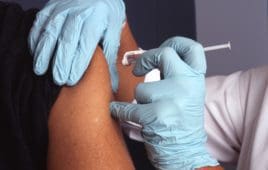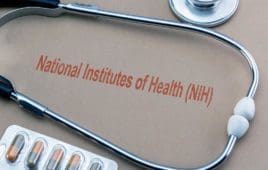The recent emergence of H5N1 avian influenza in humans and animals has intensified global efforts to prepare for a potential pandemic. Public health agencies and international organizations are collaborating with pharmaceutical companies and academic institutions to develop vaccines, treatments, and strategies to mitigate the impact of an outbreak. The CDC, for instance, has released interim…
3 critical monkeypox vaccine questions
In the U.S., federal authorities have allowed two vaccines to be used to reduce the risk of monkeypox virus infection. The preferred option is the Jynneos vaccine from Bavarian Nordic (OMX:BAVA), followed by Emergent BioSolutions’ (NYSE:EBS) ACAM2000. While vaccination efforts are ramping up, California, New York and Illinois have declared states of emergency as the…
3 ways to reduce implicit bias in predictive analytics for better health equity
The COVID-19 pandemic has brought into sharp focus the racioethnic and socioeconomic disparities inherent in the U.S. healthcare system. These disparities take the form of increased adverse health outcomes and reduced quality of life for affected groups. For example, a study of cities that reported COVID-19 deaths by race and ethnicity found that 34% of…
CDC panel unanimously backs J&J and Moderna vaccine boosters
CDC’s Advisory Committee on Immunization Practices (ACIP) has recommended the Janssen (NYSE:JNJ) COVID-19 vaccine booster at least two months after the initial dose. The committee also recommended a booster of the Moderna’s (NSDQ:MRNA) COVID-19 vaccine for people 65 and a handful of other demographics. Also eligible for boosters are individuals at least 18 who are…
ACIP votes unanimously backs GSK’s shingles vaccine Shingrix for immunocompromised adults 19 and older
CDC’s Advisory Committee on Immunization Practices (ACIP) unanimously recommended two doses of GlaxoSmithKline’s (NYSE:GSK) Shingrix (a recombinant adjuvanted zoster vaccine) for adults 19 and older with immunodeficiency or immunosuppression as a result of disease or therapy. CDC considers Shingrix to be an adult vaccine, and its recommendation is for the adult immunization schedule, which begins…
White House reveals plan to vaccinate children aged 5 to 11
The White House says that vaccine doses will be readily available and free of charge for children between the ages of five and 11, assuming the FDA and CDC authorize them. The authorization of a vaccine for that age group would make 28 million additional Americans eligible for vaccination. Pfizer (NYSE:PFE) recently asked FDA to…
CDC analysis finds COVID-19 boosters generally elicit mild-to-moderate side effects
Most third doses of mRNA COVID-19 vaccines elicit side effects in line with that of the second dose, according to a CDC report. The study analyzed immunocompromised recipients of the Pfizer-BioNTech and Moderna COVID-19 vaccine recipients eligible for a third dose. It pulled data from 22,191 V-safe registrations. V-safe is a CDC-created smartphone-based system for tracking…
COVID-19 vaccine booster tensions mount between White House, CDC and FDA
Facing the second-biggest wave of COVID-19 infections and waning popularity, President Biden has promised to launch an initiative to begin providing vaccine boosters starting September 20. But the plan hinges upon FDA and CDC support, and some officials at the agencies remain unconvinced that boosters are immediately necessary. Two departing senior FDA vaccine officials recently co-wrote…
NIH to study third dose of COVID-19 vaccine in people with autoimmune disease
The National Institutes of Health (NIH) has launched a study to gauge the antibody response of a third dose of mRNA COVID-19 vaccine in patients with autoimmune disease. Participants in the study had an insufficient immune response to the primary series of vaccination. The Phase 2 study will also test the impact of pausing immunosuppressive…
CDC advisory committee recommends additional vaccine dose for immunocompromised
The panel joined FDA in endorsing a third dose of Pfizer-BioNTech and Moderna vaccines for moderately to severely immunocompromised patients. The Advisory Committee on Immunization Practices (ACIP) concluded there was insufficient evidence to recommend an additional dose for immunocompromised recipients of Janssen’s COVID-19 vaccine. The ACIP panel described the third dose of vaccine as part…
COVID-19 vaccination halves reinfection risk according to CDC study
Among those with previous COVID-19 infections, those who were unvaccinated were 2.34 times more likely to get infected again than vaccinated individuals, according to a CDC report. “Getting the vaccine is the best way to protect yourself and others around you, especially as the more contagious Delta variant spreads around the country,” said CDC director Dr.…
COVID-19 vaccinations continue to decline in the U.S.
The pace of COVID-19 vaccination in the U.S. continues to fall. Today, the U.S. administered about 600,000 COVID-19 vaccine doses, which is far fewer than two months ago. At the mid-April peak, healthcare workers administered more than 3 million COVID-19 vaccine doses. The pace of vaccination fell steadily from that time to early June before…
FDA plans to warn of rare myocarditis risk following COVID-19 vaccination
FDA has acknowledged that myocarditis and pericarditis are rare possible complications for patients receiving mRNA COVID-19 vaccines from Moderna and Pfizer/BioNTech. The agency, however, estimated that the condition occurs in 12.6 out of one million recipients of the vaccine aged 12 to 39. The conditions appear to be more common in males. The FDA warning…
Americans apparently trust healthcare professionals more than FDA, CDC
As the U.S. tries to reach a post-COVID-19 pandemic “normal,” Americans are placing more trust in nurses and doctors than agencies such as the CDC and FDA, according to a new survey from the Robert Wood Johnson Foundation and Harvard T.H. Chan School of Public Health. The survey took place Feb. 11 – March 15,…
Feds halt J&J COVID-19 vaccine due to blood clot concern
The FDA and CDC issued a joint statement today recommending the pause in the administration of the Johnson & Johnson COVID-19 vaccine. As of yesterday, more than 6.8 million doses of the J&J single-dose vaccine had been administered in the U.S. Among recipients of those doses, six cases of a rare and severe type of blood…
Pfizer and Moderna COVID-19 vaccines 90% effective in real-world study
A single dose of Pfizer or Moderna vaccine is about 80% effective at preventing COVID-19 infection at least two weeks after injection. The efficacy level rises to 90% two weeks after the second dose of either mRNA vaccine, according to a recent CDC study involving roughly 4,000 essential workers. In contrast to the Phase 3 trials from…
Is COVID-19 herd immunity elusive or within reach?
Last year, herd immunity seemed like a comforting promise as researchers worked on dozens of COVID-19 vaccine candidates and a silver-lining to the rampant spread of the virus — the more people who got infected, the more natural immunity that would develop over time. There are now dissenting opinions about how the term relates to…
Norway investigating deaths of 23 individuals who received COVID-19 vaccine
In Norway, authorities are investigating the deaths of nearly two dozen people who received the COVID-19 vaccine from Pfizer (NYSE:PFE) and BioNTech (NSDQ:BNTX). To date, it has analyzed data from 13 of those individuals. The Norwegian Medicines Agency concluded that common adverse reactions to mRNA vaccines, including fever and nausea, could have contributed to deaths in elderly…
CDC and FDA to monitor recipients of Moderna, Pfizer COVID-19 vaccines for Bell’s Palsy
CDC and FDA have committed to monitoring recipients of two COVID-19 vaccines for Bell’s palsy, a type of facial paralysis. FDA, however, concluded that there is insufficient data to determine whether the mRNA-based vaccines from Moderna (NSDQ:MRNA) and Pfizer (NYSE:PFE)/BioNTech (NSDQ:BNTX) are linked to the condition, which is often temporary. Both vaccines use messenger RNA technology, which is…
FDA OKs intentional genomic alteration in pigs — with potential therapeutic applications
The FDA has approved an intentional genomic alteration (IGA) in a line of domestic pigs known as GalSafe. The decision marks the first time the agency has signed off on a biotechnology product for both food applications and potential therapeutic use. The news “represents a tremendous milestone for scientific innovation,” said FDA Commissioner Dr. Stephen…
CDC panel: Healthcare workers and nursing home residents should be among first to get COVID-19 vaccine
A Centers for Disease Control and Prevention (CDC) advisory panel voted 13 to 1 to prioritize COVID-19 vaccines for healthcare workers and residents of long-term facilities after FDA authorizes their use. The panel’s recommendations include three-tiers — Phases 1A, 1B and 1C — for early vaccinations. Officials with the federal government’s Operation Warp Speed have…
Who should get COVID-19 vaccines first? CDC advisors have ideas
An estimated 21 million U.S. healthcare workers should be among the first to receive a COVID-19 vaccine, according to a CDC advisory committee. The Advisory Committee on Immunization Practices (ACIP) within the CDC met yesterday to discuss how to best allocate COVID-19 vaccines. Members of the group will formalize their recommendations by voting after FDA…
NIH announces public-private partnership with pharma to coordinate COVID-19 vaccine development
The National Institutes of Health and its foundation announced that, in collaboration with multiple biopharmaceutical companies and government agencies, they will develop an international strategy for coordinating research responses to the COVID-19 pandemic. The collaboration includes the Health and Human Services Office of the Assistant Secretary for Preparedness and Response, the Centers for Disease Control…


